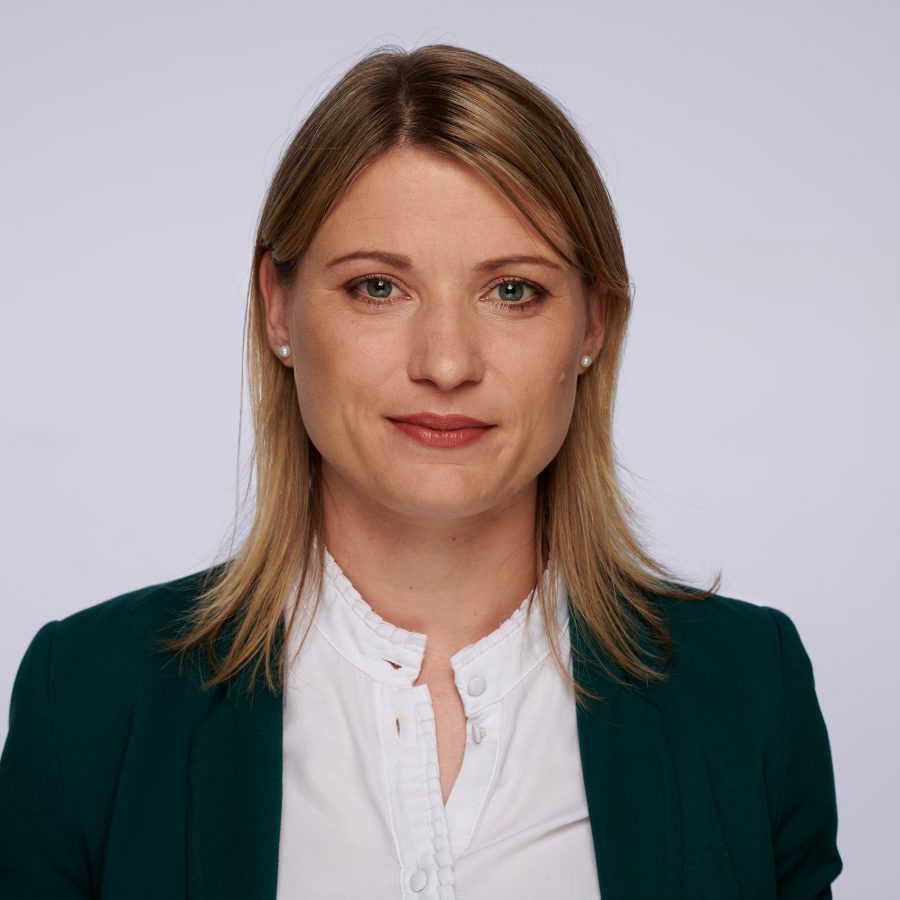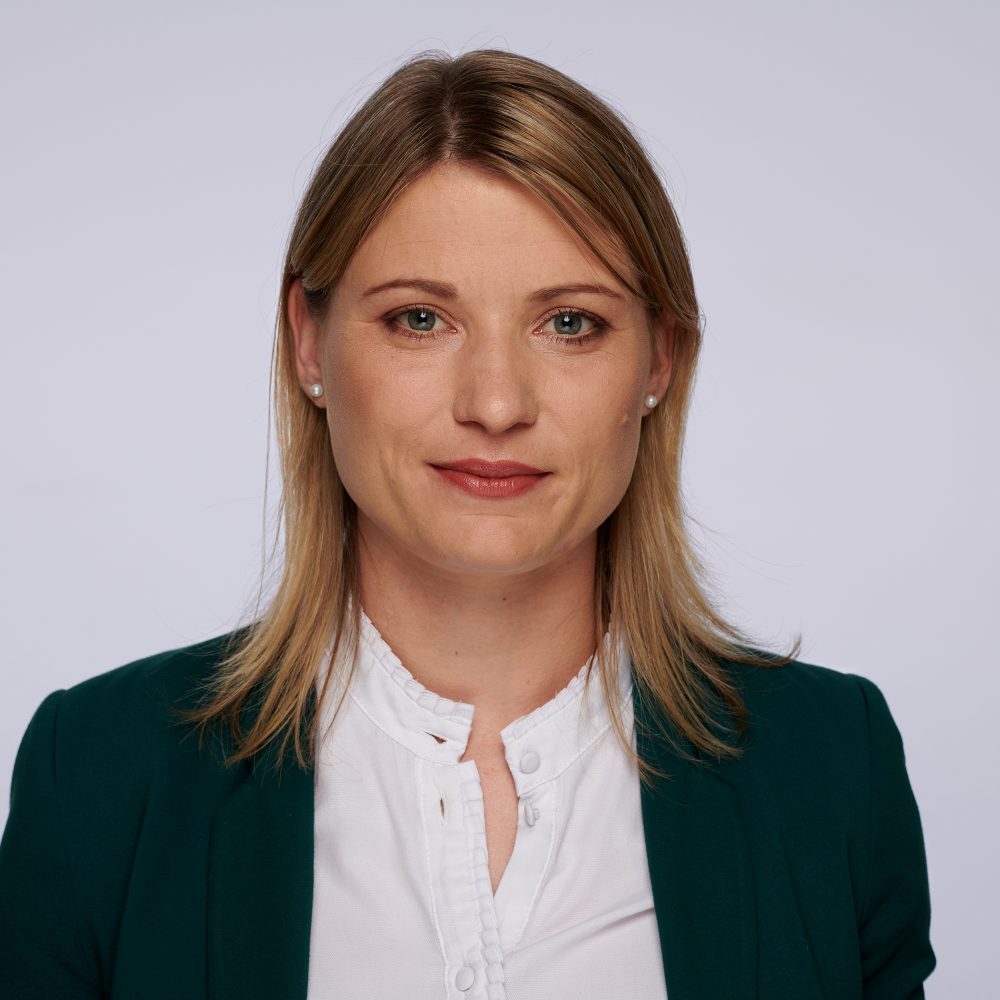‘We want to help our clients move forward, beyond a single project’

In 2019, Irene Seemann was the founder and only employee of Rebel Deutschland. Four years later, the team in Düsseldorf consists of eight and advises on projects in climate adaptation, innovative mobility, and renewable energy. Irene tells us how Rebel Germany started out, catches us up on recent projects, and shares what the future holds.
Hi Irene, could you tell me something about your background and how you started working for Rebel?
‘I’ve actually had a real Rebel career. I am German and grew up in Tönisvorst, close to the Dutch border. I later studied Economics in Maastricht and Rotterdam. In 2012, I was looking for a job when I saw an open junior position at Rebel on the career service portal of Rotterdam’s Erasmus University.
‘I wanted to do the type of work that would challenge my brain every day and do something good for the world. Earlier, I had done a number of internships that were either/or in this regard. I worked for an NGO, which was good for the world, but not so challenging. At consultancies, it was the other way around. When I interviewed at Rebel, I thought, ‘This is it!’’
How did Rebel Deutschland come to be, and how has the office changed over the past few years?
‘Rebel Deutschland was founded in 2019. After having worked in Rotterdam for a few years, I spent one year in our Washington DC office. When I came back to the Netherlands, I met my now-husband, who lived in Düsseldorf. After some time in a long distance relationship, I wanted to move in with him. At the same time, I didn’t want to leave the company! So I decided to bring Rebel with me.
‘Just like our colleague had moved to The United States to start a joint-venture there, I proposed setting up a Rebel venture in Germany. At Rebel, we are encouraged to be entrepreneurial: if you have a good idea, a realistic plan and the passion and confidence to realize it, colleagues will tell you to go for it.
‘I quickly hired an intern, Arno Sikora, to help me out. After three months, I realized I couldn’t do it without him. He still works here today and has since been made shareholder as well. Later, more colleagues joined. Now, we are eight. We have a great team and are growing both in numbers but also in experience, in responsibility and in (shared) ownership, which I think is really cool.’
Which markets does Rebel serve in Germany?
‘In the early days of Rebel Germany, we continued to work on Dutch and international projects while developing the German market. I already had a profile in climate adaptation and climate resilience and a strong skill set in economic analyses, working on cost-benefit analyses for climate adaptation projects worldwide. With backing from our colleagues and partners in The Netherlands, where water management and adaptation to climate risk had long been on the agenda, this quickly became one of our strongest markets in Germany.
‘In the same way, we won innovative projects for the mobility market: advising on ticketing systems for public transport, optimizing urban parking, and assessing the potential of shared mobility options or innovative transport solutions. We’ve since also developed a position in the renewable energy industry. I’d say these are our three main markets, although we jump on other interesting opportunities we see.’
What are some examples of recent projects and Rebel’s role in them?
‘We develop business cases and carry out cost-benefit analyses for clients, but we also support processes and structure stakeholder engagement. While the first are more quantitative in nature, the latter are all about using our soft skills to get a project moving. For the city of Münster, we brought parties together to draw up a heat action plan. It’s a workshop-heavy process that requires those involved to have extensive discussions with one another. We help them identify their challenges and find solutions that everyone feels comfortable with.
‘We also carried out a feasibility study for a water bus in the German city of Cologne, helping the municipality to find out whether the river Rhine could be used as a means of public transportation. Traffic congestion is a huge issue in the city. Roads, trains, and trams are often full. So together with traffic experts, we looked at the water as potential transport infrastructure, taking the technical and operational feasibility as a starting point for innovative urban mobility.
‘Rebel had already advised Antwerp on the same topic, while in Rotterdam, colleagues are very familiar with the water taxi system there. Our extensive network really helped to bring in people with the right experience on this project.’
What differentiates Rebel from other consultancies, do you think?
‘We are different because we go beyond the immediate tasks as instructed by the Terms of Reference of an assignment, and really help clients move forward beyond a single project. It’s not about checking boxes for us. We want to ensure that clients can take the next step after the project we do for them is finished, whether Rebel will be involved again or not. We are direct in our communication and take a pragmatic approach.
‘In addition, we work for both the public and the private sectors, while a lot of consultancies focus on either, or have separate branches for them. Rebel knows the interface between the two really well and offers the kind of in-house expertise that is rare in the German market.’
What ambitions does Rebel Deutschland have for the (near) future?
‘We are sure to grow further, both in revenue and the number of staff. In the future, we might, for example, open an office in Berlin. Having a Rebel presence in the German capital, where the federal government agencies are located, would be essential in order to do projects at the national level.
‘Most importantly, our ambition is to go from being a consultancy firm that does projects for clients here and there, to working with them more consistently and profoundly. I think we can really grow in our role and in our position, not just as a partner to our clients, but as a thought leader in German markets. The bigger you are, the more you will be heard.’
